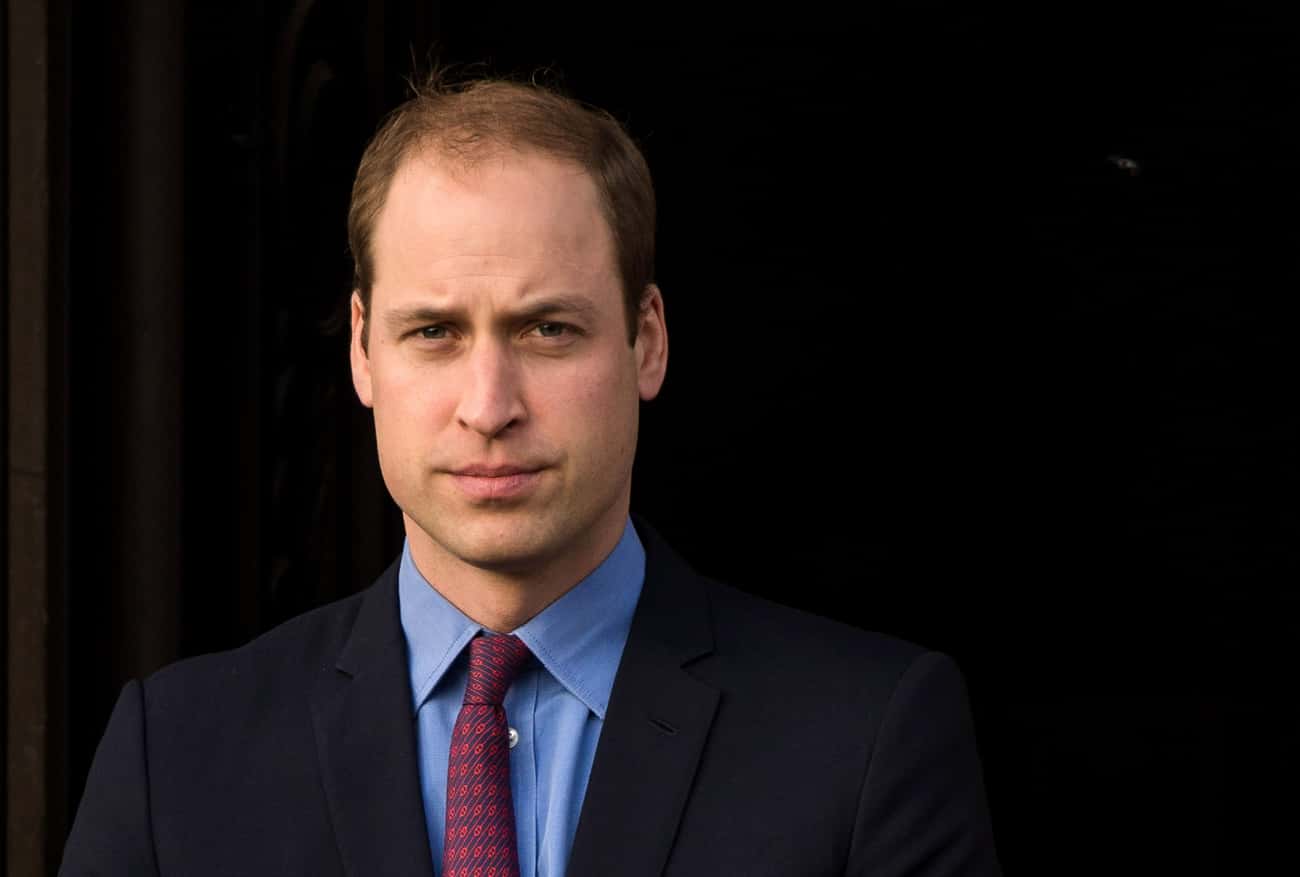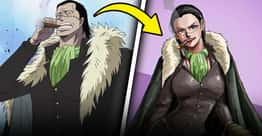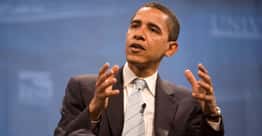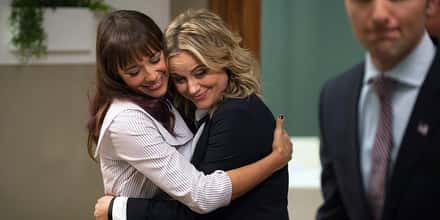List of Famous Princes
- Photo: Samir Hussein / Getty ImagesPrince Harry, Duke of Sussex, (born Henry Charles Albert David; 15 September 1984) is a member of the British royal family. He is the younger son of Charles, Prince of Wales, and Diana, Princess of Wales, and is sixth in the line of succession to the British throne. Harry was educated at Wetherby Preparatory School, Ludgrove School and Eton College. He spent parts of his gap year in Australia and Lesotho. He then underwent officer training at the Royal Military Academy Sandhurst. He was commissioned as a cornet (i.e. second lieutenant) into the Blues and Royals, serving temporarily with his brother, Prince William, and completed his training as a troop leader. In 2007–08, he served for over ten weeks in Helmand, Afghanistan, but was pulled out after an Australian magazine revealed his presence there. He returned to Afghanistan for a 20-week deployment in 2012–13 with the Army Air Corps. He left the army in June 2015. Harry launched the Invictus Games in 2014 and remains patron of its foundation. He also gives patronage to several other organisations, including the HALO Trust, the London Marathon Charitable Trust, and Walking With The Wounded. On 19 May 2018, he married the American actress Meghan Markle. Hours before the wedding, his grandmother Queen Elizabeth II conferred on him the titles Duke of Sussex, Earl of Dumbarton and Baron Kilkeel, all in the Peerage of the United Kingdom. The couple's son, Archie Mountbatten-Windsor, was born on 6 May 2019.
- Photo: Metaweb (FB) / Public domainSiddhārtha Gautama (Sanskrit: सिद्धार्थ गौतम Siddhāṛtha Gautama, c. 563/480 – c. 483/400 BCE) or Siddhattha Gotama (शिद्धत्थ गोतम) in Pali, also called the Gautama Buddha, the Shakyamuni (i.e. "Sage of the Shakyas") Buddha, or simply the Buddha, after the title of Buddha, was a monk (śramaṇa), mendicant, sage, philosopher, teacher and religious leader on whose teachings Buddhism was founded. He is believed to have lived and taught mostly in the northeastern part of ancient India sometime between the 6th and 4th centuries BCE.Gautama taught a Middle Way between sensual indulgence and the severe asceticism found in the śramaṇa movement common in his region. He later taught throughout other regions of eastern India such as Magadha and Kosala.Gautama is the primary figure in Buddhism. He is believed by Buddhists to be an enlightened teacher who attained full Buddhahood and shared his insights to help sentient beings end rebirth and suffering. Accounts of his life, discourses and monastic rules are believed by Buddhists to have been summarised after his death and memorized by his followers. Various collections of teachings attributed to him were passed down by oral tradition and first committed to writing about 400 years later.More Buddha
- #205 of 559 onPeople We Wish Were Still Alive
- #55 of 752 onThe Greatest Minds of All Time
- #32 of 309 onThe Most Important Leaders In World History
- Photo: Richard Stonehouse/Stringer / Getty Images EntertainmentBorn into the British royal family, William, Prince of Wales, has lived a life of immense privilege and profound duty. Born on June 21, 1982, to Charles, Prince of Wales, and Diana, Princess of Wales, his early years were marked by the glare of the media spotlight and the complex dynamics of his family's legacy. Despite the pressures of his birthright, William was noted for his affable demeanor and strong sense of responsibility from an early age. William's education was a blend of traditional schooling and royal tutelage. He attended Ludgrove School and later Eton College, where he demonstrated a keen interest in geography and history. Following Eton, he spent some time in Chile on a gap year, working on community service projects, before enrolling at the University of St. Andrews in Scotland. There, he obtained a degree in geography, further cementing his reputation as a dedicated student and conscientious individual. Beyond academics, William has shown a longstanding commitment to public service and philanthropy. He served in the Royal Air Force, undertaking rescue missions as a helicopter pilot, a role that showcased his bravery and dedication to serving his country. Additionally, he has been involved in numerous charitable initiatives, championing causes such as mental health awareness, conservation efforts, and support for disadvantaged youth. Throughout his life, William has managed to balance his royal duties with personal passions, carving out a unique path within the constraints of his royal heritage. His life story is a testament to his resilience, compassion, and commitment to serving both his country and humanity at large.
- Dig Deeper...A Day In The Life Of William And Kate
- And Deeper...345 Famous Cancer Celebrities
- #102 of 227 onThe Most Trustworthy Celebrities In The World
- Yaphet Frederick Kotto (November 15, 1939 – March 15, 2021) was an American actor known for numerous film roles, as well as starring in the NBC television series Homicide: Life on the Street (1993–99) as Lieutenant Al Giardello. His films include the science-fiction/horror film Alien (1979), and the Arnold Schwarzenegger science-fiction/action film The Running Man (1987). He portrayed the main villain Dr. Kananga/Mr. Big in the James Bond movie Live and Let Die (1973). He appeared opposite Robert De Niro in the comedy thriller Midnight Run (1988) as FBI agent Alonzo Mosely.More Yaphet Kotto
- Dig Deeper...Actors You May Not Have Realized Are Republican
- And Deeper...Musicians You May Not Know Are Republican
- #97 of 157 onThe Greatest Black Actors In Film History
- Photo: Metaweb (FB) / CC-BY-SAManvendra Singh Gohil (born 23 September 1965) is an Indian prince who is the son and probable heir of the Maharaja of Rajpipla in Gujarat. He is the first openly gay prince in the world. He runs a charity, The Lakshya Trust, which works with the LGBT community.
- Photo: Metaweb (FB) / Public domainPrince Gustaf Adolf Oscar Fredrik Arthur Edmund, Duke of Västerbotten (22 April 1906 – 26 January 1947) was a Swedish prince, directly in line of succession to the Swedish throne. He was the eldest son of Gustaf VI Adolf, who was crown prince for most of his son's life and ascended the Swedish throne three years after his son's death. The current king, Carl XVI Gustaf, is Prince Gustaf Adolf's son. The prince was killed on 26 January 1947 in an airplane crash at Kastrup Airport, Copenhagen, Denmark.
- Dig Deeper...Members of the House Of Bernadotte
- And Deeper...Famous People Who Died in Air Disasters
- #128 of 307 onFamous People Who Died in Plane Crashes
- Photo: Metaweb (FB) / Public domainPrince Felix Felixovich Yusupov, Count Sumarokov-Elston (Russian: Князь Фе́ликс Фе́ликсович Юсу́пов, Граф Сумаро́ков-Эльстон; 23 March [O.S. 11 March] 1887 – 27 September 1967) was a Russian aristocrat, prince and count from the Yusupov family. He is best known for participating in the assassination of Grigori Rasputin and marrying the niece of Tsar Nicholas II.
- Photo: Metaweb (FB) / Public domainOtto von Habsburg (20 November 1912 – 4 July 2011), also known by his traditional royal title of Archduke Otto of Austria, was the last Crown Prince of Austria-Hungary from 1916 until the dissolution of the empire in 1919, a realm which comprised modern-day Austria, Hungary, Bosnia and Herzegovina, Croatia, the Czech Republic, Slovakia, Slovenia, and parts of Italy, Montenegro, Poland, Romania, Serbia and Ukraine. He became the pretender to the former thrones, Head of the House of Habsburg-Lorraine, and Sovereign of the Order of the Golden Fleece in 1922, upon the death of his father. He resigned as Sovereign of the Golden Fleece in 2000 and as head of the Imperial House in 2007. The eldest son of Charles I and IV, the last Emperor of Austria and King of Hungary, and his wife, Zita of Bourbon-Parma, Otto was born as third in line to the thrones, as Archduke Otto of Austria, Royal Prince of Hungary, Bohemia, and Croatia. With his father's accession to the thrones in 1916, he was likely to become emperor and king. As his father never abdicated, Otto was considered by himself, his family and Austro-Hungarian legitimists to be the rightful emperor-king from 1922.Otto was active on the Austrian and European political stage from the 1930s, both by promoting the cause of Habsburg restoration and as an early proponent of European integration—being thoroughly disgusted with nationalism—and a fierce opponent of Nazism and communism. He has been described as one of the leaders of the Austrian Resistance. After the 1938 Anschluss, where monarchists were severely persecuted in Austria and sentenced to death by the Nazis, Otto fled Europe to the United States. Otto von Habsburg was Vice President (1957–1973) and President (1973–2004) of the International Paneuropean Union, and served as a Member of the European Parliament for the Christian Social Union of Bavaria (CSU) from 1979 to 1999. As a newly elected Member of the European Parliament in 1979, Otto had an empty chair set up for the countries on the other side of the Iron Curtain in the European Parliament, and took a strong interest in the countries behind the Iron Curtain. Otto von Habsburg played a notable role in the revolutions of 1989, as a co-initiator of the Pan-European Picnic. Later he was a strong supporter of the EU membership of central and eastern European countries. A noted intellectual, he published several books on historical and political affairs. Otto has been described as one of the "architects of the European idea and of European integration" together with Robert Schuman, Konrad Adenauer, and Alcide De Gasperi.Otto was exiled in 1919 and grew up mostly in Spain. His devout Catholic mother raised him according to the old curriculum of Austria-Hungary, preparing him to become a Catholic monarch. During his life in exile, he lived in Switzerland, Madeira, Spain, Belgium, France, the United States, and from 1954 until his death, finally in Bavaria (Germany), in the residence Villa Austria. At the time of his death, he was a citizen of Germany, Austria, Hungary, and Croatia,having earlier been stateless de jure and de facto, and possessed passports of Monaco, the Order of Malta, and Spain. In 1961, he was offered the crown of Spain by Francisco Franco. He refused, and Juan Carlos of the House of Bourbon was made Franco's successor instead. His funeral took place at St. Stephen's Cathedral in Vienna on 16 July 2011; he was entombed in the Imperial Crypt in Vienna and his heart buried in Pannonhalma Archabbey in Hungary.
- Photo: Metaweb (FB) / CC-BY-SAPrince Daniel of Sweden, Duke of Västergötland (born Olof Daniel Westling on 15 September 1973), is the husband of Crown Princess Victoria. Prior to his marriage to the heir apparent, Daniel was a personal trainer and gym owner and ran a company called Balance Training with three gyms in central Stockholm.
- Photo: Metaweb (FB) / Public domainJohn Owen Dominis (March 10, 1832 – August 23, 1891) was an American-born statesman. He became Prince Consort of the Kingdom of Hawaiʻi upon his marriage to the last reigning monarch, Queen Liliʻuokalani.
- Photo: Metaweb (FB) / CC-BY-SAArchduke Felix of Austria (given names: Felix Friedrich August Maria vom Siege Franz Joseph Peter Karl Anton Robert Otto Pius Michael Benedikt Sebastian Ignatius Marcus d'Aviano; 31 May 1916 – 6 September 2011) was the last surviving child of the last Austrian Emperor Charles I and a member of the House of Habsburg. He was a younger brother of former Crown Prince Otto of Austria, who predeceased Felix by two months.
- Archduke Robert, Archduke of Austria-Este (8 February 1915 – 7 February 1996), was the second son of Karl I, (beatified) last Emperor of Austria-Hungary, and Princess Zita of Bourbon-Parma.
- St. Alexander Yaroslavich Nevsky (Russian: Алекса́ндр Яросла́вич Не́вский; pronounced [ɐlʲɪˈksandr jɪrɐˈsɫavʲɪtɕ ˈnʲɛfskʲɪj] (listen); 13 May 1221 – 14 November 1263) served as Prince of Novgorod (1236–40 and 1240–56 and 1258-1259), Grand Prince of Kiev (1236–52) and Grand Prince of Vladimir (1252–63) during some of the most difficult times in Kievan Rus' history. Commonly regarded as a key figure of medieval Rus', St. Alexander – the grandson of Vsevolod the Big Nest – rose to legendary status on account of his military victories over German and Swedish invaders while agreeing to pay tribute to the powerful Golden Horde. He was canonized as a saint of the Russian Orthodox Church by Metropolite Macarius in 1547.
- Photo: Metaweb (FB) / Public domainPrince Erik, Duke of Västmanland (Erik Gustav Ludvig Albert; 20 April 1889 – 20 September 1918) was a Swedish and Norwegian prince. He was the third and youngest son of King Gustav V of Sweden and Victoria of Baden. In 1904, Prince Erik was appointed a Knight of the Norwegian Lion by his paternal grandfather, King Oscar II.
- Photo: Metaweb (FB)Prince Bertil, Duke of Halland (Bertil Gustaf Oskar Carl Eugén; 28 February 1912 – 5 January 1997), was a member of the Swedish royal family. He was the third son of King Gustaf VI Adolf and his first wife, Princess Margaret of Connaught, as well as the uncle of King Carl XVI Gustaf of Sweden, Queen Margrethe II of Denmark and Queen Anne-Marie of Greece. From 1973 to 1979 he was heir presumptive to his nephew King Carl XVI Gustaf and the Swedish throne.
- Prince Andrew Andreevich Romanov (born 21 January 1923) is a Russian American artist and author. He is a grand-nephew of Russia's last Tsar, Nicholas II. Since 31 December 2016, he is honorary president of the Romanov Family Association. He is a great-great-grandson in the male line of Emperor Nicholas I of Russia.
- Prince Teymuraz Constantinovich Bagration (21 August 1912 – 10 April 1992) was a Georgian-Russian nobleman and an émigré in the United States where he served as President of the Tolstoy Foundation, a New York-based charitable organization.
- Archduke Rudolf of Austria (5 September 1919 – 15 May 2010) was the sixth child and youngest son of Emperor Charles I of Austria and Zita of Bourbon-Parma.
- Photo: Metaweb (FB) / Public domain
Prince Wilhelm, Duke of Södermanland
Prince Wilhelm, Duke of Södermanland (Carl Wilhelm Ludvig; 17 June 1884 – 5 June 1965) was a Swedish and Norwegian prince. He authored a large number of books (primarily in Swedish) as Prins Wilhelm. - Photo: Metaweb (FB) / CC-BY-SA-2.5ʻAhoʻeitu Tupou VI (Tongan: ‘Aho‘eitu ʻUnuakiʻotonga Tukuʻaho; born 12 July 1959) is the King of Tonga. He is the younger brother and successor of the late King George Tupou V. He was officially confirmed by his brother on 27 September 2006 as the heir presumptive to the Throne of Tonga, as his brother (a bachelor) had no legitimate children. He served as Tonga's High Commissioner to Australia, and resided in Canberra until the death of King George Tupou V on 18 March 2012, when ʻAhoʻeitu ʻUnuakiʻotonga Tukuʻaho became King of Tonga, with the regnal name ʻAhoʻeitu Tupou VI.
- Prince Fatafehi Tu'ipelehake (Sione Ngū Manumataongo; born 7 January 1922 – 10 April 1999), was the youngest son of HM The Queen Sālote Tupou III and was educated in Tonga and Australia. Tu'ipelehake is a traditional very high-ranking Tongan title. He was the 5th Tu'ipelehake.
- Archduke Carl Ludwig of Austria (Carl Ludwig Maria Franz Joseph Michael Gabriel Antonius Robert Stephan Pius Gregor Ignatius Markus d'Aviano; 10 March 1918 – 11 December 2007), also known as Carl Ludwig Habsburg-Lothringen, was the fifth child of Charles I of Austria and Princess Zita of Bourbon-Parma. He was born in Baden bei Wien and died in Brussels.
Jefri Bolkiah
Prince Jefri Bolkiah, full name His Royal Highness Pengiran Digadong Sahibul Mal Pengiran Muda Jefri Bolkiah ibni Al-Marhum Sultan Haji Omar Ali Saifuddien Sa'adul Khairi Waddien (born 6 November 1954), is a member of the Brunei Royal Family. His elder brother is Sultan of Brunei Hassanal Bolkiah.Prince Jefri was the finance minister of his oil-rich country from 1986 to 1998. He also served as chairman of the Brunei Investment Agency (BIA) which invests much of the country's wealth and was responsible for overseas investments. In the wake of the 1997 Asian Financial Crisis, the sultan had external accountants audit the books of BIA, resulting in charges by the Brunei government that Prince Jefri had embezzled $14.8 billion. He denies the charges but in 2000 agreed to turn over his personal holdings to the government, in return for avoiding criminal prosecution and being allowed to keep a personal residence in Brunei. After numerous legal disputes and appeals, in 2007 Britain's Privy Council ruled that this agreement is enforceable. His various legal issues with the Bruneian state have become the most expensive legal case in British legal history. Prince Jefri is known for his extravagant lifestyle. His personal holdings included a huge art collection, the British jeweller Asprey, the New York Palace Hotel, Hotel Bel-Air in Los Angeles and Plaza Athénée in Paris. He is married to three wives and divorced from two others and has eighteen children.- Photo: Metaweb (FB) / Public domain
Christopher Báthory
Christopher Báthory (Hungarian: Báthory Kristóf; 1530 – 27 May 1581) was voivode of Transylvania from 1576 to 1581. He was a younger son of Stephen Báthory of Somlyó. Christopher's career began during the reign of Queen Isabella Jagiellon, who administered the eastern territories of the Kingdom of Hungary on behalf of her son, John Sigismund Zápolya, from 1556 to 1559. He was one of the commanders of John Sigismund's army in the early 1560s. Christopher's brother, Stephen Báthory, who succeeded John Sigismund in 1571, made Christopher captain of Várad (now Oradea in Romania). After being elected King of Poland, Stephen Báthory adopted the title of Prince of Transylvania and made Christopher voivode in 1576. Christopher cooperated with Márton Berzeviczy, whom his brother appointed to supervise the administration of the Principality of Transylvania as the head of the Transylvanian chancellery at Kraków. Christopher ordered the imprisonment of Ferenc Dávid, a leading theologian of the Unitarian Church of Transylvania, who started to condemn the adoration of Jesus. He supported his brother's efforts to settle the Jesuits in Transylvania. Hso Khan Pha
Prince Hso Khan Pha of Yawnghwe (Burmese: စဝ်ခမ်းဖ, aka Tiger; 15 April 1938 – 4 October 2016) was a consulting geologist who lived in exile in Canada. He was a son of Sao Shwe Thaik, the Saopha of Yawnghwe and Sao Nang Hearn Kham, the Mahadevi (consort). Sao Shwe Thaik was the first President of the democratic and newly independent Union of Burma from 1948-52.- Photo: Metaweb (FB) / CC-BY
Thutmose
Thutmose (or, more accurately, Djhutmose) was the eldest son of Pharaoh Amenhotep III and Queen Tiye, who lived during the Eighteenth dynasty of Egypt. His apparent death led to the reign of Akhenaten, his younger brother—as the successor to the Egyptian throne—and the intrigues of the century leading up to Ramesses II, the start and ultimately the failure of Atenism, the Amarna letters, and the changing roles of the kingdom's powers. - Photo: Metaweb (FB) / Public domain
Prince Putjatin
- Prince Hamzah bin Hussein, (Arabic: حمزة بن الحسين) (born 29 March 1980) is the elder son of King Hussein of Jordan and his American-born fourth wife, Queen Noor. He was named Crown Prince of Jordan in 1999, a position he held until his half-brother, King Abdullah II, rescinded it in 2004. Queen Noor states in her autobiography that she and King Hussein named Hamzah after Hamza ibn ‘Abd al-Muttalib.































